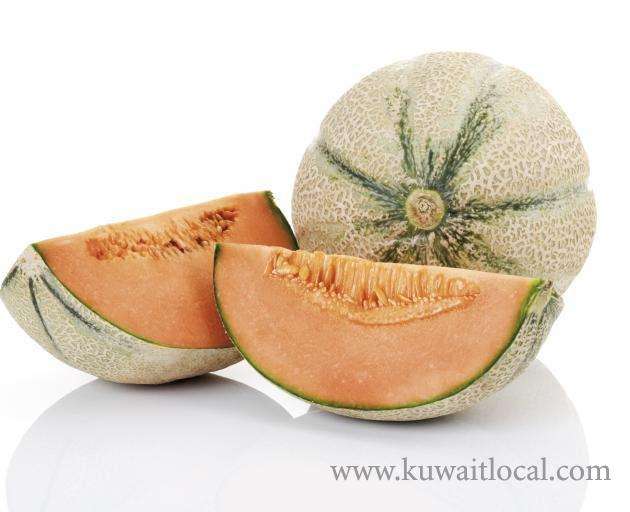Latest News
- MoH To Launch World Immunization Week Activities
- Kuwait Ranked High In The 'Gifted Arabs' Initiative For The Acad...
- New Direct Tax Transfer Mechanism For Vehicle Imports
- Citizen Arrested For Illicit Marijuana Farming In Salwa Apartmen...
- MoE Prioritizes Local Hiring To Address Teacher Shortage
- Court Sentences Bank Employee To 5 Years For Embezzling 100,000...
- Fake ‘Sheikh’ Sentenced To 2-yr As Court Overturns Verdict
- Justice Ministry New Service On The Sahel App
- Ministry Probes 68 Cases Of Illegal Charity, Funds Collection
- Globally, Kuwait Is Among The Top Consumers Of Incense And Oud O...
- Decrease Seen In Foreign Investment
- Kuwait Customs Seized 2 Containers Laden With Tobacco At Shuwaik...
Melons Contaminated With Listeriosis Bacteria Were Exported From Australia

Melons contaminated with deadly listeriosis bacteria were exported to at least nine countries from Australia, where an outbreak has killed seven people and caused one miscarriage, the World Health Organization said on Monday.
The rockmelons, or cantaloupes, were sent to Hong Kong, Japan, Kuwait, Malaysia, Oman, Qatar, Singapore, the United Arab Emirates and Bahrain, and may also have gone to the Seychelles, a WHO statement said.
Between Jan 17 and April 6, Australia reported 19 confirmed and one probable case of listeriosis, all of whom were hospitalised. Seven died.
The Listeria monocytogenes bacterium has a potentially long incubation period, usually one or two weeks but possibly up to 90 days, so more cases may be reported, the WHO said. “Cases in the affected countries may still be identified,” it said. The Australian melon producer, which the WHO did not name, recalled the fruit on Feb 27.
;On March 2 Australian authorities discovered the firm’s melons had been exported, and they sent detailed notifications through the International Food Safety Authorities Network to the countries concerned. “It is believed that the cause of the outbreak was a combination of environmental conditions and weather contaminating the surface of the fruit, with low levels of the bacteria persisting after the washing process,” the WHO said. “The grower continues to work closely with the relevant authorities and has returned to supply rockmelons (during the week starting April 2) after testing cleared the property.”
Listeriosis can come in a mild form that causes diarrhoea and fever in healthy people within a few days. But it also has a severe form that can cause septicemia and meningitis among more highrisk people, such as pregnant women, infants, old people, and people having treatment for cancer, AIDS or organ transplants.
The severe form has a 20-30 percent mortality rate. As well as unwashed fruit, high risk foods include dairy products made of unpasteurized milk, soft cheeses, deli meat products, ice creams, raw seafood, crustaceans and shellfish.
In other news, an export ship due to carry more than 50,000 sheep to the Middle East has been blocked from leaving Australia after secret footage emerged of distressed animals dying and struggling to breathe in filthy conditions.
;Australia’s live animal export trade, worth more than A$800 million ($615 million) annually, has been under scrutiny in recent years after footage shot at offshore abattoirs showed cattle being mistreated.
The latest images, shot onboard Panama-flagged livestock carrier Awassi Express, showed large numbers of sheep packed together in small, stifling pens, covered in or surrounded by excrement. Many were dead.
The footage, captured over five voyages last year to Qatar, Kuwait and Oman from Australian ports, was released by activist group Animals Australia.
SOURCE : ARABTIMES
Trending News
-
 Eid Al Fitr 2024: Crescent Moon Not Sighted In Sau...
08 April 2024
Eid Al Fitr 2024: Crescent Moon Not Sighted In Sau...
08 April 2024 -
 Kuwait Implements Home Biometrics Services Ahead O...
14 April 2024
Kuwait Implements Home Biometrics Services Ahead O...
14 April 2024 -
 When Will Eid Al Fitr 2024 Take Place In Qatar, Ba...
08 April 2024
When Will Eid Al Fitr 2024 Take Place In Qatar, Ba...
08 April 2024 -
 On Sunday, The Meteorological Department Warns Of...
07 April 2024
On Sunday, The Meteorological Department Warns Of...
07 April 2024 -
 Kuwait Airways Provides Update On Flight Schedule...
14 April 2024
Kuwait Airways Provides Update On Flight Schedule...
14 April 2024 -
 Kuwait Airways Introduces Convenient Home Luggage...
15 April 2024
Kuwait Airways Introduces Convenient Home Luggage...
15 April 2024 -
 Gathering For Eid Al-Fitr Prayers: Kuwaiti Citizen...
10 April 2024
Gathering For Eid Al-Fitr Prayers: Kuwaiti Citizen...
10 April 2024 -
 Winners Of Kuwait National Assembly 2024 Elections
06 April 2024
Winners Of Kuwait National Assembly 2024 Elections
06 April 2024 -
 Bay Zero Water Park Kuwait: Summer Season Opens Ei...
11 April 2024
Bay Zero Water Park Kuwait: Summer Season Opens Ei...
11 April 2024 -
 An Egyptian Expat Dies At Kuwait's Airport
11 April 2024
An Egyptian Expat Dies At Kuwait's Airport
11 April 2024












Comments Post Comment